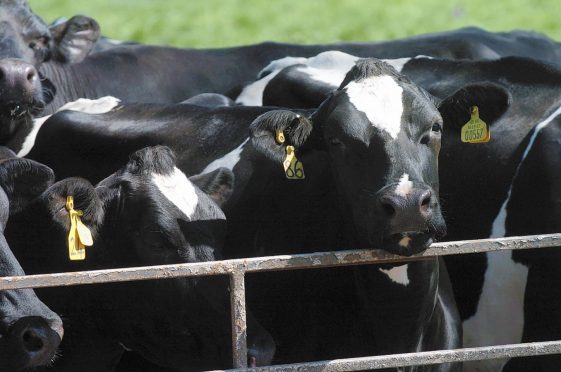UK farmers are struggling to make ends meet and running out of cash flow options, claims a new study.
The study, which was conducted by consultancy firm The Andersons Centre on behalf of Prince Charles’ rural charity The Prince’s Countryside Fund, was commissioned in response to growing concerns about the sector and reports of serious cash flow problems on farms across the UK.
According to the study, the levels of farm borrowing have almost doubled in the past 10 years and the trend is set to continue as a result of the continued decline in commodity prices.
“The worst affected sectors are cereals, milk and pigs where incomes are dropping sharply,” it said.
The study reported that nearly one in five farmers – 17% – were facing major financial problems and did not have the ability to pay off their short-term debt.
It also found that half of UK farms were no longer making a living from farming alone, and 20% of farms generated a loss even before accounting for family labour and capital.
Agricultural businesses supplying farmers reported that more than half of their customers were experiencing cash flow issues. The main drivers were falling commodity prices and delays in receiving farm subsidy payments.
“The research presents a very bleak picture not only for farmers; but also for the wider rural economy. Volatile commodity markets are not just affecting farmers; decreased cash flow is affecting the industry as a whole, from vets to feed and machinery suppliers to auction marts. The full extent of the crisis is not yet fully understood,” said The Prince’s Countryside Fund chairman, Lord Curry.
“As a result we are witnessing a trend towards increased and sometimes risky borrowing by farmers. Distressingly the outlook does not look set to change in the short-term and the degree of uncertainty about the future is affecting everyone. This in turn is causing suppliers to consider making job redundancies and think about coming out of agriculture. It is essential that farm businesses seek professional advice, have all the support they need to cope and that they are equipped with risk and business management tools. Confidence, better co-operation and communication throughout the supply chain are needed if they are to survive.”
The charity issued four recommendations for the agricultural industry following the study.
The first is improved communication and collaboration between suppliers, banks and farm businesses focusing on the immediate needs to help with budgeting and managing repayments.
The second is cross-sector commitment to encourage businesses to engage with the farming help charities and the array of business tools and advice available, while the third is a recommendation that farm businesses are given their subsidy payments on time and if that is not possible for a clear timescale outlining when they will be paid to be given.
The last recommendation is for farm businesses to take advantage of opportunities to improve their skills in business planning and financial management through training, the use of online tools and through seeking advice and guidance.
